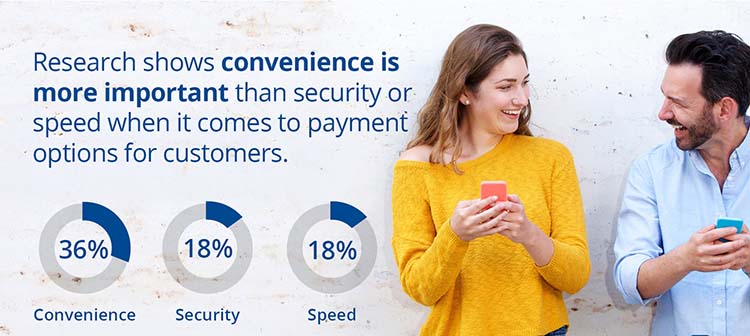We all know consumers are growing more accustomed to getting the things they want quickly. From online shopping to ridesharing, mature industries are vastly changing as the companies focused on serving their customers quickly and efficiently win. This expectation of fast service is also spilling into the payments space as consumers expect to send and receive funds instantly, especially in business-to-consumer (B2C) transactions. This desire creates an opportunity for businesses looking to retain and attract customers and increase their market share.
“Consumers are demanding seamless, faster payments across the board,” said Sheree Thornsberry, Meta Financial Group and MetaBank EVP and Head of Payments. “Companies would be well served by offering this innovation to their customers.”
A recent survey of 1,214 U.S. adults conducted by MetaBank offers compelling evidence that consumers want faster payments, and the companies that meet this demand have a lot to gain. Moreover, the faster and more convenient a payment is, the more the consumers desires it.
People choose — and stay with — companies that pay faster.
Take direct deposit, for instance. Of the 71 percent of respondents who reported that they prefer to receive funds from a business using a paperless option, direct deposit was the most popular method.
Roughly half of the respondents would be more willing to do business again with a company that offers direct deposit funds that are available within minutes. This number drops to nearly 40 percent if the direct deposit isn’t available in minutes but instead days. In other words, the willingness to do business with a company goes up by nearly 10 percent if a company offers faster direct deposits.
Unsurprisingly, the inverse is also true: Consumers are less inclined to do business with a company again that uses slower payment methods. For example, 31 percent of consumers are less willing to do business with a company that makes payments via check, according to MetaBank’s survey. Companies that are heavily reliant on checks would be wise to notice this trend.
Faster payments have a direct impact on customer loyalty and retention, particularly in industries that frequently make B2C payments, like insurance and tax.
For example, 42 percent of survey participants stated they’d be more likely to stay with an insurance provider that offers to pay approved claims within minutes. And 13 percent of those surveyed stated they’d be willing to switch insurance providers to one that offered to pay approved claims within minutes. Similar trends emerge in the tax industry, with consumers preferring to use businesses that offer direct deposit instead of checks.
Data like this reflects the reality that people want goods and services quickly, and they are willing to take their business elsewhere if these needs are not being met. And the companies that are embracing faster payments are reaping the benefits.
“Businesses are finding several use cases where faster payments work, from payroll or gig-economy payments, to rebates and rewards payments and insurance distributions,” said Sarah Grotta, Director of Debit and Alternative Products Advisory Service at Mercator Advisory Group. “Businesses report that faster payments are more efficient than checks, create fewer consumer issues, and simply provide a better overall experience.”
Customers are willing to pay for it
Even with the knowledge that faster payments promote customer satisfaction and loyalty, a business might be hesitant to make the switch out of a fear of the associated costs. But often faster payments more than pay for themselves, and business don’t need to cover the costs entirely by themselves.
Consumers are actually willing to pay small fees to receive faster payments. According to the survey, 1 in 4 consumers indicated they’d be willing to pay a small fee to receive payments—such as rebates, refunds or credits—within a few minutes. The fact that this many consumers are willing to pay a small fee is a testament to how much they value the service.
Offering faster payment methods in addition to checks also saves money, regardless of any fees a consumer is willing to pay. Paper checks can cost businesses a sizeable amount of money. Research from Nacha, the organization that oversees the ACH Network, estimates that switching to direct deposit can save a company between $2.87 and $3.15 per paper check. This can translate to huge savings when you aggregate the amount of checks a business might send out over the course of a year.
Conclusion
Whether it be the value offered to customers or the potential savings from providing alternatives to traditional checks, faster payments present a unique opportunity for businesses looking to grow. As more people become familiar with, and begin requesting, faster payment functionality, the pressure for businesses to adopt these services will only grow.
Already, the rise in popularity of these platforms is striking. In 2017, only 18 percent of consumers had heard of Zelle, a mobile app that enables faster payments. Now, nearly one-third of consumers have heard of the product and 7 percent have reported receiving funds from a business using it, according to MetaBank’s study.
“There has been considerable interest and real growth in business-to-consumer disbursements using faster payments,” said Grotta. Companies looking to stay competitive should pay attention to this trend.
More data from MetaBank’s research on this trend is illustrated here.
